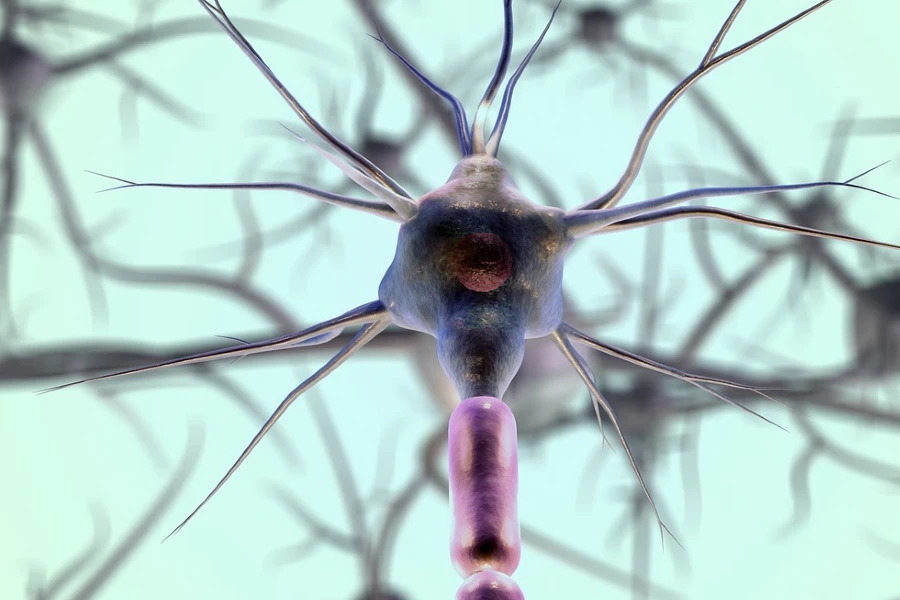Strategies for Effective Management of Peripheral Neuropathy Disease
Peripheral neuropathy is a medical disorder characterized by damage to the nerves located outside the brain and spinal cord.
Peripheral neuropathy is a multifaceted medical disorder that impacts a large number of individuals globally. Peripheral neuropathy is a neurological disorder that specifically impacts the peripheral nervous system, encompassing all nerves located outside of the brain and spinal cord. This illness can result in a diverse array of symptoms, including tingling, numbness, pain, and weakness in different areas of the body. The symptoms may vary in intensity, duration, and distribution throughout different parts of the body.
Peripheral neuropathy can arise from several sources such as diseases, accidents, infections, and exposure to toxins. Peripheral neuropathy can be attributed to several prevalent factors, including diabetes, alcoholism, chemotherapy, HIV infection, and autoimmune illnesses. Additional factors that may contribute to the onset of this ailment encompass genetic predisposition, insufficiencies in essential vitamins, and specific pharmaceuticals.
Autonomic neuropathy can result in a range of symptoms, including alterations in blood pressure, heart rate, perspiration, and digestion.
The manifestations of peripheral neuropathy can differ according on the specific nerves that are impacted. For instance, in the event of sensory nerve loss, an individual may encounter symptoms of numbness, tingling, or burning in their hands, feet, or legs. If the motor neurons are impacted, an individual may encounter weakness or muscle wasting in corresponding regions. Autonomic neuropathy can result in a range of symptoms, including alterations in blood pressure, heart rate, perspiration, and digestion.
The management of peripheral neuropathy typically entails addressing the root cause of the condition. When peripheral neuropathy is a result of an underlying disease, such as diabetes, treating the disease can frequently lead to an improvement or resolution of the symptoms. Additional treatment options may encompass analgesic drugs, physiotherapy, and modifications to one’s lifestyle, such as adopting a nutritious diet and regular exercise regimen.
There is no universally applicable solution for handling it.
There is no universally applicable solution for handling it, but here are some efficient strategies:
Tackling Root Causes:
Effective treatment of neuropathy can lead to the improvement or complete reversal of nerve damage if it is caused by an underlying illness such as diabetes or vitamin deficiencies.
Modifications to one’s way of life:
A nutritious diet that includes a variety of fruits, vegetables, and whole grains is crucial for maintaining optimal nerve health.
Engage in regular physical activity: Incorporating low-impact exercises such as walking, swimming, or yoga into your routine will enhance blood flow and alleviate discomfort.
Weight management: Shedding extra pounds can enhance blood sugar regulation and alleviate strain on nerves.
Smoking cessation: is vital because smoking constricts blood vessels and diminishes blood circulation to nerves.
Foot care: is crucial, particularly for individuals with diabetes. Conducting daily foot inspections to identify injuries and wearing appropriate footwear can effectively prevent complications.
Management of pain:
Treatment options for pain management may include the use of non-prescription analgesics, antidepressant medications, anticonvulsant drugs, or topical lidocaine.
Physical therapy utilizes exercises and procedures to enhance flexibility, strength, balance, and alleviate pain.
Massage Therapy: Massage has the potential to enhance blood circulation and alleviate discomfort and rigidity.
Non-conventional Therapies:
Research indicates that acupuncture may provide certain advantages in terms of pain reduction.
Relaxation Techniques: Practices such as meditation and yoga can effectively alleviate stress, which has the potential to exacerbate pain.
General Advice:
- Take measures to safeguard your skin and steer clear of very high or low temperatures.
- Opt for garments that are not constricting and refrain from using tight straps or bands.
- Notify your doctor of any deteriorating symptoms or newly experienced pain.
- It is crucial to seek guidance from a healthcare professional to obtain an accurate diagnosis and a customized treatment strategy for properly controlling peripheral neuropathy.
To summarize, peripheral neuropathy is an intricate and incapacitating ailment that has the potential to impact individuals of all ages. Seeking medical assistance is crucial if you encounter any indications of this ailment, as prompt identification and intervention can significantly enhance your well-being. Through careful collaboration with your healthcare practitioner and adherence to their prescribed treatment regimen, you can effectively manage your symptoms and assume authority over your well-being.













